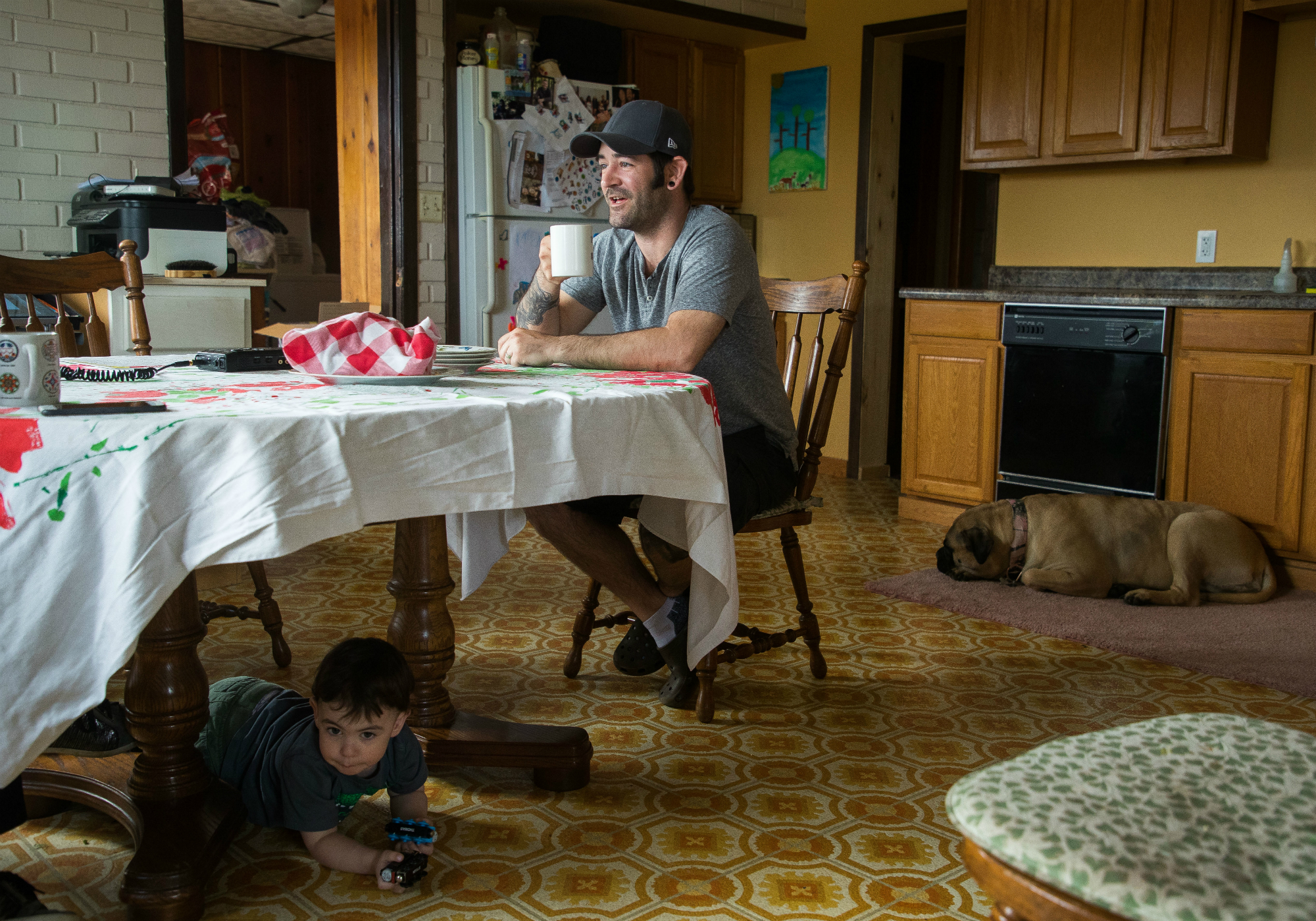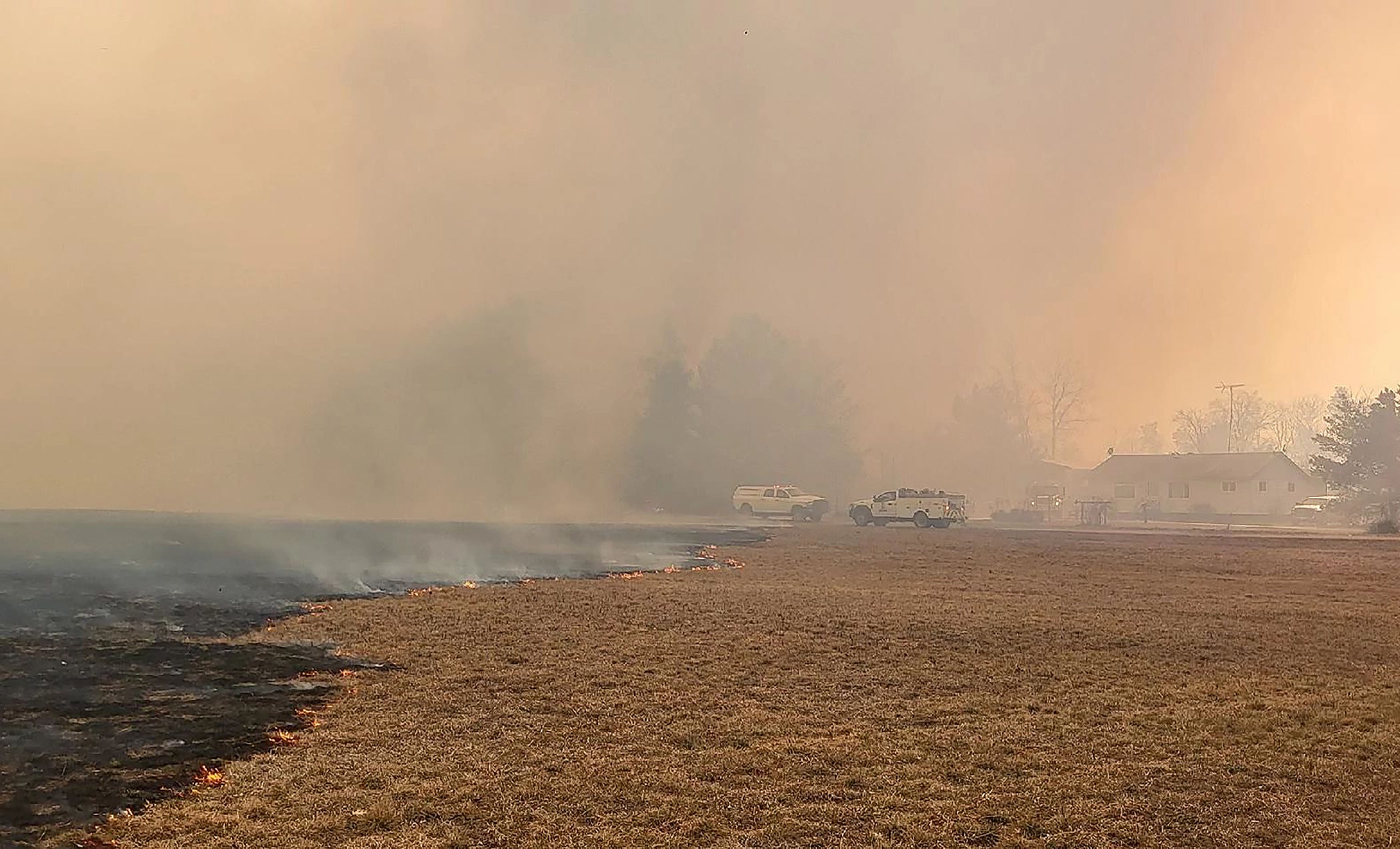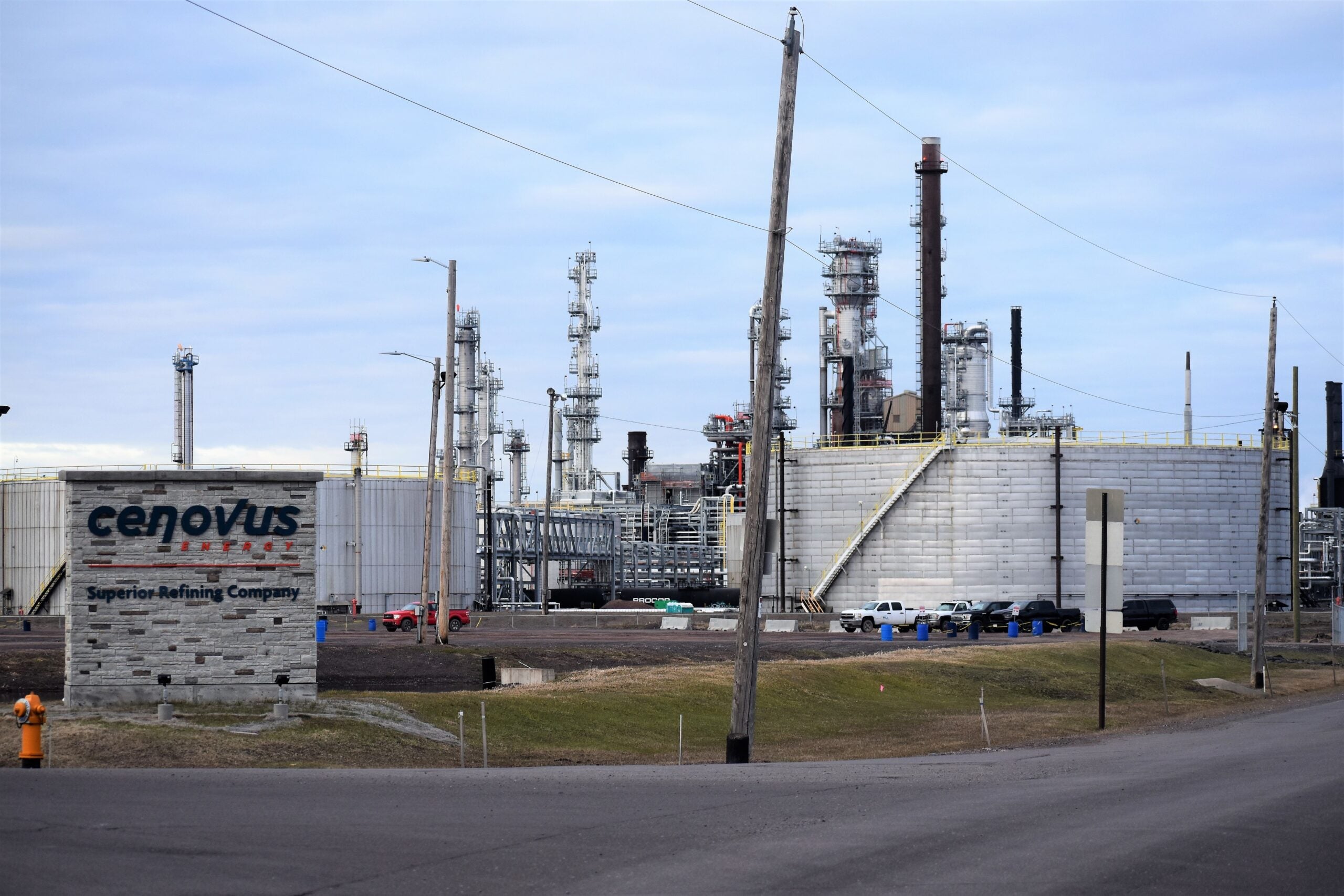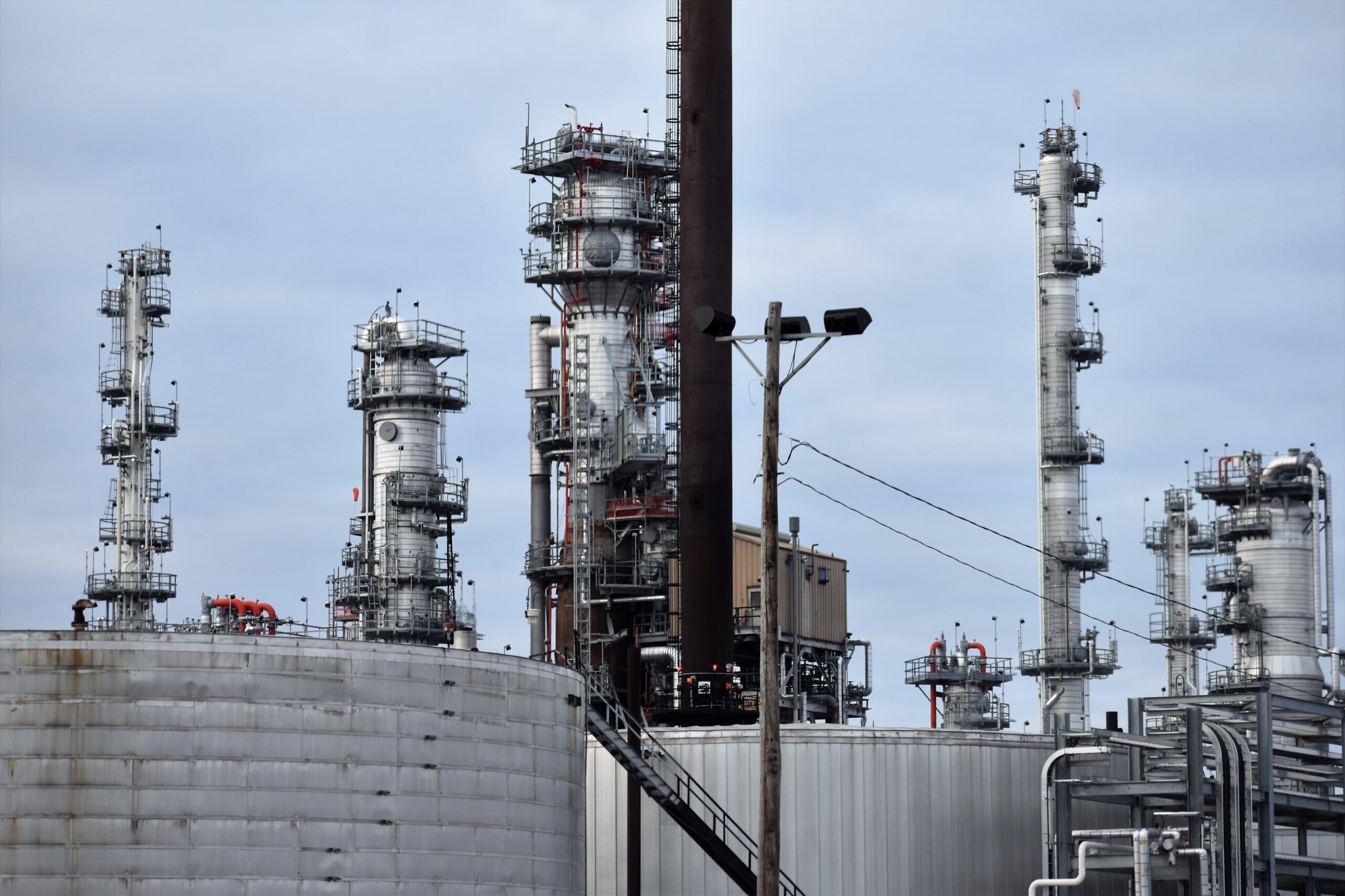No one died. The worst-case scenario remained just a scenario. Yet the explosions and fire that tore through the Husky Energy Superior Refinery nearly six weeks ago, forcing the overnight evacuation of thousands, hurt.
To date, Husky Energy has received nearly 3,000 claims from businesses and residents who incurred extra expenses or suffered losses during the incident: hotel bills, lost wages and other items associated with the evacuation. The company says it has reached agreements on most of those claims, though it is not disclosing how much money is involved, which could climb into the millions of dollars.
A comprehensive accounting of how much the fire and evacuation cost the community may never be possible, especially because some of the costs are difficult to quantify. How do you measure the short- and long-term costs of pollution? Or the fear and anxiety some residents still carry with them?
Stay informed on the latest news
Sign up for WPR’s email newsletter.
Still, some residents have said the incident has been a rare chance to put safety, planning and community partnerships to the test, and see how resilient the city is under pressure. In that regard, some say Superior is a model for what should happen during a large-scale industrial evacuation.
Lesson 1: An incident like this can have a long-lasting impact on schools.
The Superior School District has been feeling the impact of the evacuation every day since — 13 minutes at a time.
On the day of the fire, students were bused to a parking lot outside the evacuation zone, where parents picked them up. School was canceled the next day, and because of state requirements for “contact minutes” with students, that time had to be made up in some way.
Superintendent Janna Stevens polled teachers, who said they preferred adding a little time to each day through the end of the school year rather than returning to school on an additional Monday in June.
The school district’s financial losses reached nearly $300,000, from lost school lunch revenue, additional staff compensation and replacement air filters for all the buildings.
The fire “affected everybody in some way shape or form,” Stevens said. There were some tears the day it happened, “because it was scary.”
Lesson 2: Know the hazards that exist in your backyard — and prepare for them.
This wasn’t the first time that at least part of Superior had to evacuate because of a chemical risk.
Stevens, the school superintendent, remembers the day in 1992 when she showed up to teach summer school and was told to go home because of a train derailment. The train had been carrying benzene — a highly toxic and flammable chemical, and in the crash released a cloud of toxic vapors 20 miles long and 5 miles wide, according to the Duluth News Tribune.
“When we have situations like this, we navigate it, keep calm, cool and collected and make sure we’re taking the best care of our kids and our staff that we can,” she said. That includes having emergency plans.
Those emergency plans came in handy at Essentia Health St. Mary’s-Superior Clinic, too. Staff at Essentia Health had prepared and even drilled for an emergency evacuation, so when Essentia’s Superior St. Mary’s had to evacuate and find beds elsewhere for a dozen patients on April 26, they knew what to do when the order to leave came through.
“That really made us prepared, and as soon as we got that initial page, we knew in our heads and had a plan of next steps, who to contact and what to do,” said Dr. Dawn Drotar, who helped oversee the evacuation.
Lesson 3: Some lost income is harder to quantify than others.

Mechanic Mike Pinor works on an engine Monday, May 21, 2018, at Five Star Automotive in Superior. Workers at the shop had to leave early as the facility was within the evacuation zone that followed the Husky Energy refinery fire and explosions Thursday, April 26, 2018. Derek Montgomery for MPR News
Five Star Automotive is a repair shop on Superior’s bustling Tower Avenue. The business had to delay some big jobs into the next day, when the orders to evacuate came down.
The business also could have missed out on jobs because nobody was there to answer the phone during the evacuation. But that’s a lot harder to figure. “There’s no exact science to quantify that,” general manager Steve Magnuson said.
In some ways, it would be easier to estimate losses if the evacuation had lasted for several days. “That would have hurt,” Magnuson said, adding that things were back to normal by early the next week.
Tattoo artist Jason Routley, who rents space at a shop in the evacuation zone, was right in the middle of a three-hour piece when the order to leave came. He had to cancel appointments and go home for the day, but doesn’t have a traditional pay stub to prove he lost out on several hundred dollars in income.
Routley rescheduled the half-done tattoo and another appointment, time that could have been spent on new clients. He’s waiting to hear whether Husky will reimburse him.
Lesson 4: Not all the repercussions are obvious when a major business in town shuts down.
Superior’s municipal tennis courts need resurfacing, but the cost of asphalt has gone up because of the refinery fire, which came up at a recent Superior City Council meeting. It’s not clear if the city will put off the project or seek help from Husky or elsewhere to get the job done.
And Superior Water, Light & Power is asking state regulators for a rate hike that factors in the shutdown of its largest water customer and second-largest electricity customer: Husky Energy’s Superior Refinery. The city’s mayor has said it could be a year or more before the refinery is back to normal.
Lesson 5: Community relationships can make all the difference when responding to a crisis.

Caroline Routley talks about the day of the Husky Energy refinery explosion and how it impacted her family and the ability of her husband to work while holding their seven-month-old daughter Eliza Monday, May 21, 2018, at her home in South Range, Wisc. Routley’s husband, Jason Routley, lost a day of work due to evacuations following the fire and explosions at Husky Energy Thursday, April 26, 2018. Derek Montgomery for MPR News
The day of the evacuation, most of the Superior School District’s 5,600 students and staff ended up in the parking lot of Amsoil, a manufacturing plant located outside the evacuation zone. Why? The Amsoil Northland Law Enforcement K-9 Foundation.
Amsoil’s vice president of operations, Scott Davis, and Superior’s police chief, Nick Alexander, are both on the foundation’s board. Alexander called Davis the day of the explosion to ask a favor. Could the district use Amsoil’s parking lot as an evacuation spot?
“I’m on a board of directors with him, and he has my cell phone as a result. It just clicked it his mind,” Davis said.
Amsoil employees directed traffic and helped kids find the bathrooms. “We had 24 employees involved,” Davis said, adding that the company was easily able to make up lost work time the next day. “In all reality, it did not cost us anything.”
Looking back, Davis said resilience comes from connection: “It is about the relationships you develop.”
Hilde Perala, who manages emergency preparedness for St. Mary’s Hospital in Duluth, agreed it makes a big difference when people already know each other. She said Essentia Health officials’ communications with first responders was crucial.
“This is not the time to exchange business cards, when you’re in the middle of an incident,” she said. “Communities think it will never happen to us, and you just have to look at probabilities.”




